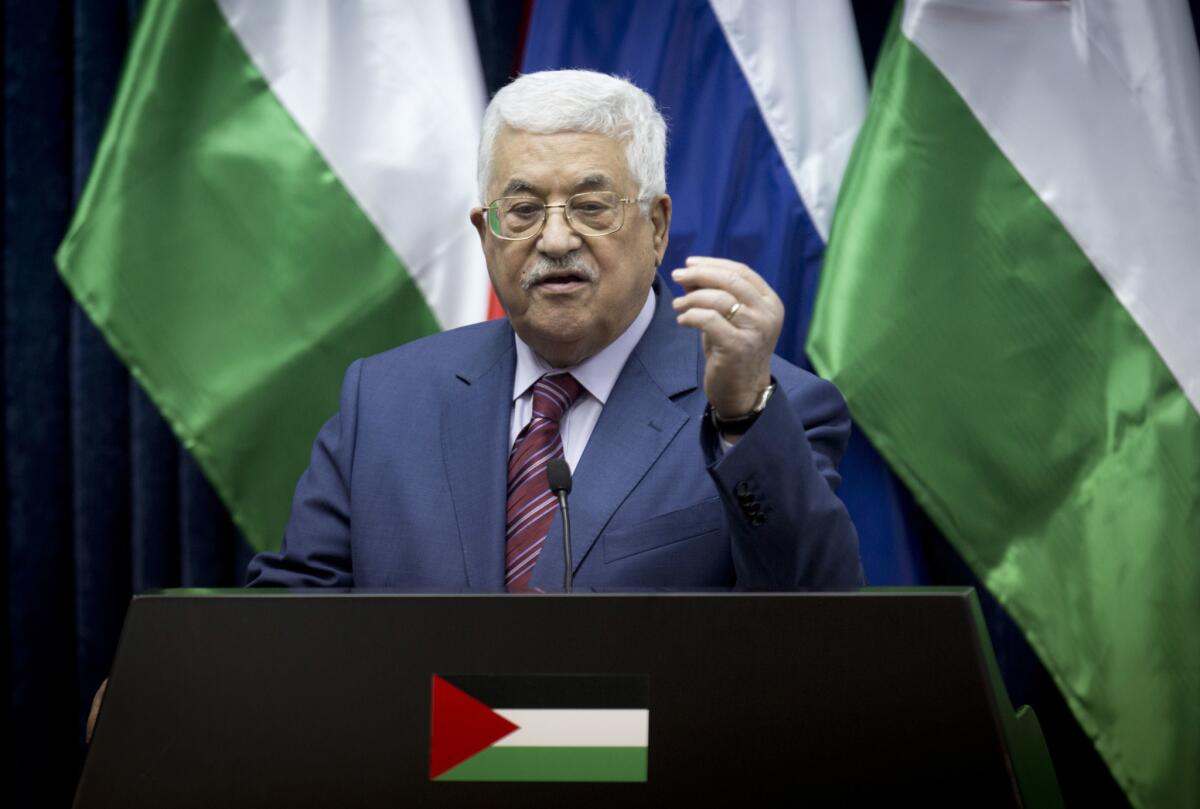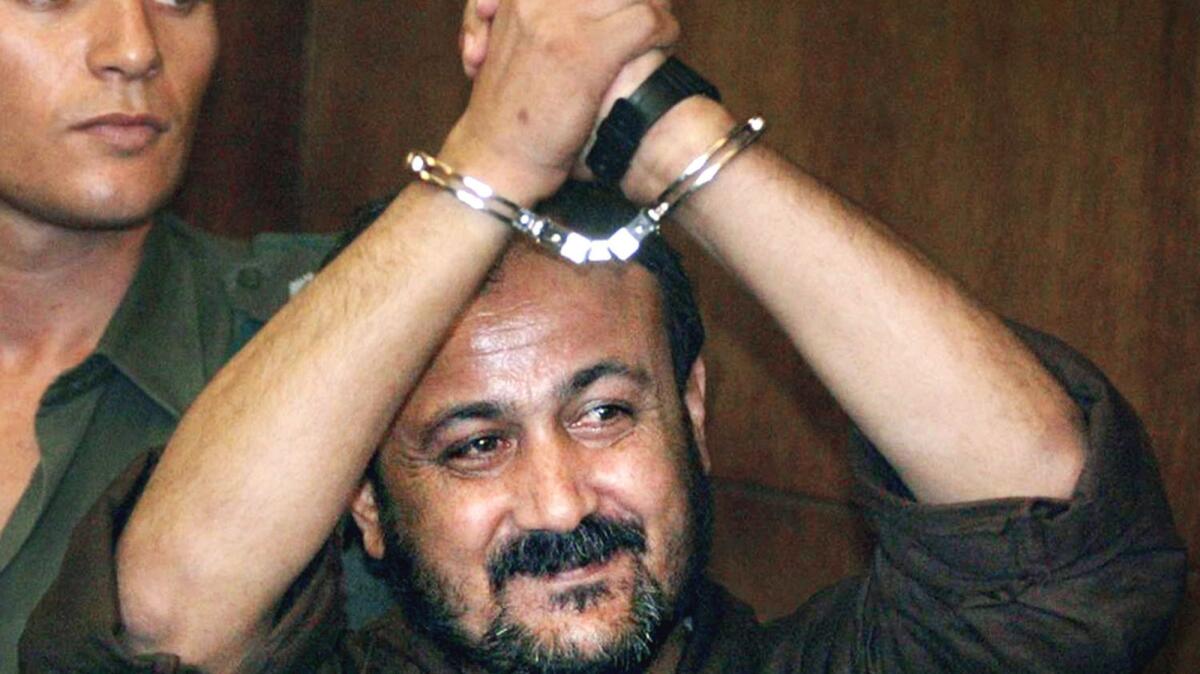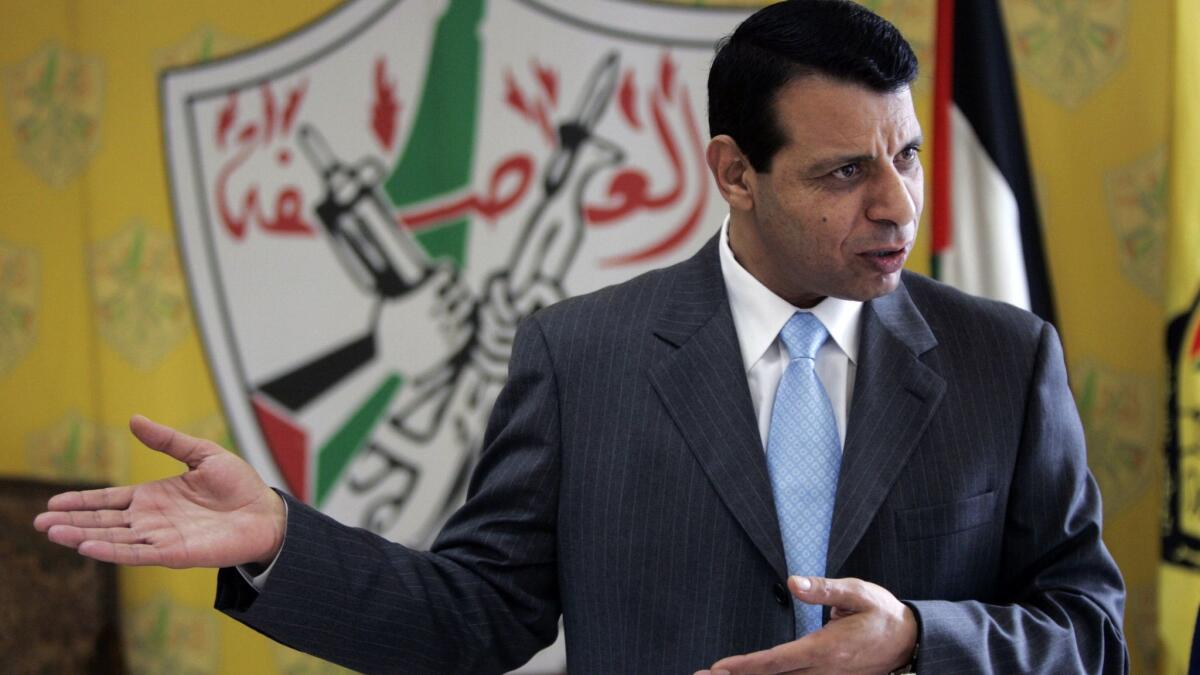The Palestinians’ political future could change this week. Here’s why

Palestinian President Mahmoud Abbas’ political party, Fatah, opens its first party congress in seven years on Tuesday amid swirling speculation about who will succeed the 81-year-old at the helm of the Palestinian Authority.
Some 1,400 Fatah delegates will gather at Abbas’ presidential compound in Ramallah for the five-day convention, with many coming from places outside the West Bank, including the Gaza Strip, Jordan, Lebanon and Syria.
One question looming over the conference is whether those delegates will select a deputy for Abbas, potentially giving that No. 2 a leg up in the running to become the next leader of the Palestinian Authority.
The congress is being held amid years of paralysis in Palestinian politics and as Fatah struggles with internal rifts and rivalries.
Abbas, who assumed power following the death of Yasser Arafat in 2004, was elected to a five-year term as president in 2005 and hasn’t called elections since. That’s primarily due to a rift with Fatah’s rival group, Hamas, which won the most recent parliamentary election in 2006 and overran the Gaza Strip the following year.
With the peace negotiations with Israel mothballed for years and little hope for Palestinian statehood anytime soon, Abbas’ approval ratings are south of 40% and nearly two-thirds of Palestinians would like to see him resign, according to a September opinion poll.
A successful congress and a reinvigorated party would be a boost for Abbas, and Fatah’s continued rule of the Palestinian Authority in the West Bank. But continued infighting and intrigue will enhance the risk of a collapse of the Palestinian Authority and violence with Israel.
Who are the leading candidates to become Abbas’ deputy in Fatah?
Jibril Rajoub was a security chief for the Palestinian Authority in the West Bank under Arafat. In recent years, he’s served as the head of the Palestinian Football Assn., using the position to wage a diplomatic campaign against Israel over its restrictions on Palestinian soccer players, among other issues. He’s thought to have considerable grass-roots support.

Marwan Barghouti was a militant leader during the second intifada, making him the most popular figure within Fatah. Barghouti’s support for negotiations and his fluency in Israeli culture and Hebrew has prompted some Israelis to point to him as a future interlocutor. He is often seen as the leader of a younger, reform-minded generation. However, he is serving consecutive life terms in Israel after being convicted of killing Israelis during the second intifada – sentences that don’t look to be overturned soon.
Nasser Al Kidwa is a nephew of Arafat who spent nearly two decades as a Palestinian ambassador to the United Nations. He also heads the Yasser Arafat Foundation, which this month opened a memorial museum on Arafat’s life. But because he’s spent most of his career abroad, his grass-roots support in the West Bank and Gaza is low.
Majjid Faraj is the head of the Palestinian security forces, which is responsible for security coordination with the Israeli army and maintaining stability in cities and villages under the control of the Palestinian Authority.
Saeb Erekat served for decades as the Palestinian point person in the peace process. He heads the Palestine Liberation Organization’s Negotiations Affairs department.
What is Fatah?
Fatah was established by Yasser Arafat as a militant political movement in the 1960s. It eventually became the dominant faction in the Palestine Liberation Organization, the group that claims to represent Palestinians both in the diaspora and in the Palestinian territories. When the Palestinian Authority was set up in the 1990s, the party took control of the governing bureaucracy, exposing it to allegations of corruption and cronyism. Fatah has a reputation for chronic infighting and unruliness that led to an election defeat to Hamas.
Will the congress definitely select a deputy?
It’s uncertain. Abbas might come to see a deputy as a future rival. But because of his advanced age and a recent heart scare, there’s a lot of pressure to name a No. 2. The fear is that the lack of a clear successor could be a recipe for instability in the West Bank.
“It’s more healthy in any political entity to have a deputy,’ said Ghassan Khatib, a former Palestinian government spokesman. “Having a deputy would make transition a little bit easier and less chaotic.”
Who won’t be at the congress?
Mohammed Dahlan, a former security chief from Gaza, has been living in exile in the United Arab Emirates and was expelled from the party after a falling out with Abbas. He’s now a leader of the opposition to Abbas in Fatah and considers himself a candidate to succeed him.

Dahlan’s allies complain they’ve been unfairly excluded from the delegate rolls. In the months leading up to the conference, Arab neighbors including Jordan, Egypt and Saudi Arabia unsuccessfully pushed for a postponement to prod Abbas into a reconciliation with Dahlan.
Grant Rumley, who studies Palestinian issues at the Foundation for Defense of Democracies, a Washington-based think tank founded by the late Republican Rep. Jack Kemp, said Abbas’ allies have reduced the number of delegates from the previous congress in 2009 and tightened control over those attending.
“This is an opportunity for Abbas to reward loyalists and sideline his rivals in formal ways,’’ he said. “The conference is a major setback for Dahlan. It will remove his supporters from positions of legitimacy.”
What is on the agenda?
Delegates will hold elections for Fatah’s two governing organs: the Fatah Revolutionary Council, the party’s internal parliament with about 100 members; and the Fatah Central Committee, the party’s executive branch with about two dozen spots.
Analysts said they will be looking to see if the party is able to replenish its leadership ranks with a younger generation of politicians, and how tight a grip Abbas keeps on the central committee and the revolutionary council.
“We must renew the leadership of the whole Fatah movement,’’ said Ziad Khalil Abu Zayyad, a Fatah spokesman. “It’s very important.”
There’s also expected to be discussion of strategy toward Israel. With peace negotiations stalled, delegates are expected to debate Fatah’s method of struggle against Israel’s military occupation of the Palestinian territories. The party might also debate the future of the Palestinian Authority’s security cooperation with Israel.
“They need to agree on the mechanism to support diplomatic negotiations,” said Daoud Kuttab, a Palestinian analyst and political analyst. “The question is what will put the pressure on the Israelis.”
Mitnick is a special correspondent
ALSO
Syrian forces capture major Aleppo neighborhood in blow to rebels
Many fear Israel wildfires will singe Jewish-Arab ties in Haifa
Israeli officials face pushback on move to legalize settlements in West Bank
More to Read
Sign up for Essential California
The most important California stories and recommendations in your inbox every morning.
You may occasionally receive promotional content from the Los Angeles Times.










